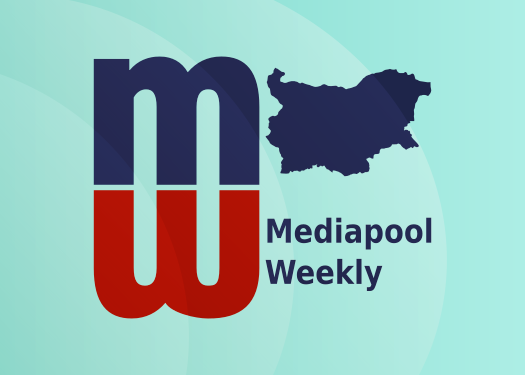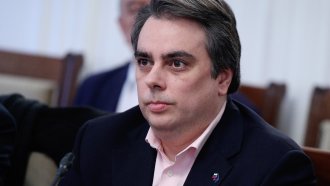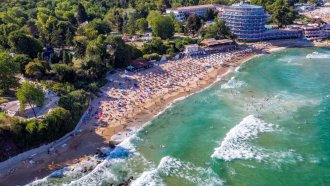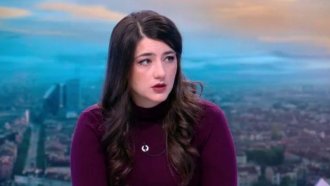Opinion:
Openly racist (unless Western media finds out)
Like many things, racism in Bulgaria could only be tackled if it leaks to the international press
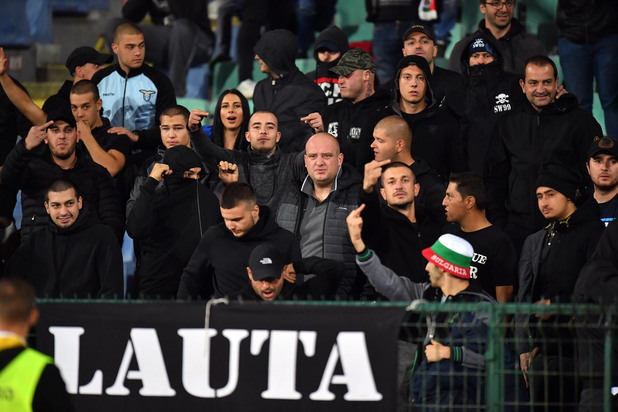
Contrary to what PM Boyko Borissov tried to tell journalists (and keeping a straight face at that), Bulgaria is not "the most tolerant country in the world". It is far from being any level of "tolerant" at all, in fact. Racism is a big part of Bulgarian life and society, and is arguably one of the widest societal consensuses, piercing through all walks of society: poor, rich, powerful. It is well institutionalized and distributed prominently among high ranking members of the executive branch.
In 2014 then-Health Minister Petar Moskov declared ambulances will no longer answer calls from Roma neighborhoods, following incidents of people attacking paramedics. He received much public praise. The straight-forward racist decision, which contradicted the constitution, human rights and a bunch of other laws, might have been his most popular move as minister. The paramedics loved it too: ambulances roamed around the capital with posters of Moskov hanging on the side.
Famously, white parents pull their children from school if there are Roma children enrolled in the class. "Famously" because this is one of the primary reasons why none of the measures against school segregation (i.e. having all-Roma or all-white schools) are not working. If this was not enough, last year a school principal (!) from Blagoevgrad published information on the school’s official Facebook page that it "will not be enrolling Roma children in the next phase of registration for first graders." Stories like this are so widespread, it is not only tolerated to the point of not being newsworthy at all, the general public’s collective eyebrow is raised to express its bewilderment as to what is the issue there.
About a year ago during the winter months no less, the sitting Vice PM Krassimir Karakachanov managed to organize the demolition of tens of houses in a neighborhood with primarily Roma population, following an incident with two brothers living there and a military officer. The position of vice PM is the second most powerful in the executive branch, and from its elevated position this executive ranted his full-bodied hatred towards the Roma minority uninterrupted in Parliament and on TV. It took him no more than several days to take care of the demolition and oversee the process personally. This was (and remains) one of the most (if not the most) swiftly executed action by the government in recent memory. Several months later Karakachanov came up with a "radical integration" plan to – by his own account – "solve the Roma problem" not least of which by imposing compulsory measures to limit the birth rate among Roma women.
In this broad context, is it surprising that core football fans, the so-called Ultras – are also radical neo-Nazis? Hardly. Is the PM and the relevant state institutions not aware of their existence? The question is laughable. So, what’s changed?
Nothing in the long run, that is a safe bet. But what took place at the National Stadium Vassil Levsky earlier this week during the match with England – apart from being appalling to say the least – introduced one of the few factors, which could stir up this PM: attention from the international media.
The story recieved widespread coverage, and Borissov tends to take international depictions of Bulgaria personally. He got upset and expanded on his thought about Bulgaria being the most tolerant country in the world, but thankfully that did not cut it. The Bulgarian team’s captain, Krassimir Balakov was made a laughing stock on (English) Twitter and media for his ridiculous answer during the press-conference that he had not heard any racist chants but if such were proven, the Bulgarian team must apologize.
Borissov asked for the head of the Bulgarian Football Union to resign. At first he said he wouldn’t, but by the end of the day Borislav Mihaylov finally resigned. To make the distinction between the state (in the face of Borissov) and the Bulgarian Football Union, the special police forces raided the buildings of the union the same day "on suspicion of corruption". To be clear, the whole of Bulgarian football is deeply corrupt (allegedly) and could be investigated any time in the past decades on a number of grounds. But they never have. For the consecutive time, PM Boyko Borissov has demonstrated that the law enforcement agencies in the country work not under the rule of law, but only at the direction of certain individuals in power when – frankly – they feel like it.
The Ultras, though, are a very interesting group and not because of their fanciest affiliations. And – again – what happened during the match with England is not anything extraordinary for them. If anything, it lacked the usual physical violence they regularly engage in. Football matches tend to produce martial law in a wide area around the stadium, during the day a match is plays. Fans fight each other, hundreds of police officers, special units and military police are employed to keep them safe.
One would wonder, why is this tolerated. And this is key. The Ultras groups are very important for the powerful of the day. They are a well organized unofficial military unit, waiting to be tapped at any time. Apart from football games, these groups, always in a well-organized manner, pop up at peaceful protests to provoke (from inside or within), whenever tensions need to rise, these people always emerge at the right time and place. Whenever those in power need (because – coincidently – the Ultras actions always seem in line with them), the Ultras are ready: to fight, to confuse, to infiltrate… whatever is needed.
This is why Bulgarian football has muted consistently and with no interruption from the institutions tasked with guarding public safety and peace. The Ultras’ groups have taken over it entirely, and they are very well off. Because they provide an invaluable service to those in power. The least they could expect in return is not to get arrested.
This time Borissov was forced to act, or at least pretend to act against them. But there is no reason to expect this to last. People will be arrested (16 till now) and charged with "hooliganism", which is the most to be expected. They will not be charged with racism, surely. When the news cycles move to the next story, all will be forgotten.
A beacon of hope lies, however, with UEFA. The organization (as has the Bulgarian Football Union, by the way) fined teams for unacceptable behavior by fans. But these fines hardly are worth anything. UEFA is facing heavy pressure to impose a real punishment to the Bulgarian team and the Bulgarian Football Union with some calling for the organization to expel Bulgaria from Euro 2020. And it should do at least that. Because, as in many other cases, Bulgaria is unable to tackle its corrupt institutions. May be this is the kind of crisis Bulgarian football needs in order to rethink its side hustle to provide beaters to the mafia state.
In other news:
A media civil war unfolding in Bulgaria: Head of Reporters Without Borders
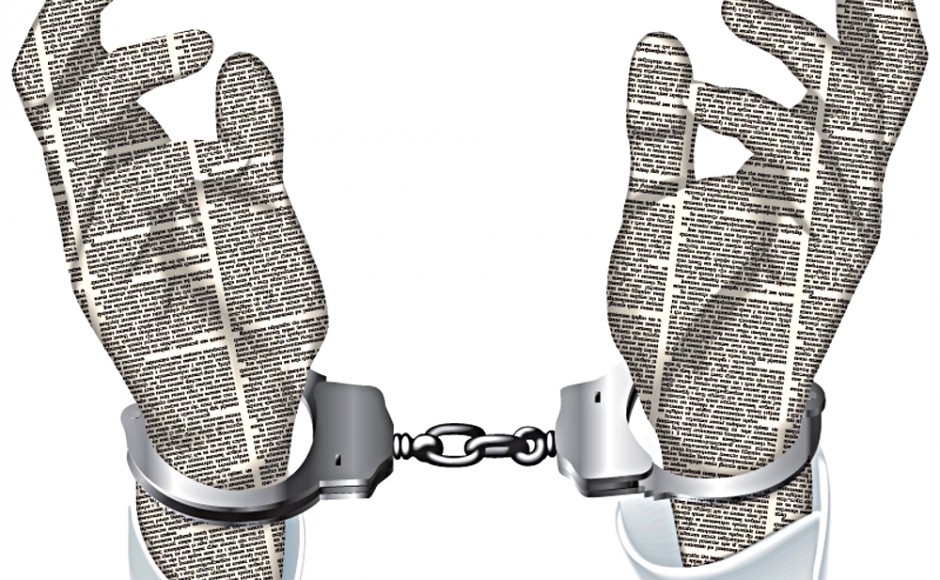
The head of Reporters Without Borders, Christophe Deloire, met with Bulgarian President Roumen Radev this week. The two discussed the state of press freedom in the country. The spokeswoman and head of the EU and Balkan desk of Reported Without Borders, Pauline Ades-Mevel, who was also at the meeting said:
"The situation is absolutely terrifying. It has probably never been worse than it is now".
Christophe Deloire said that Reporters Without Borders asked for a meeting with the president after the organization released its latest report. Bulgaria ranked 111 in the Press Freedom Index, well behind all EU and Balkan states. The country’s ranking has been consistently falling since 2006.
Deloire also expressed concern about the appointment of the next prosecutor general citing the unopposed candidate’s expressed views about the media and press freedom, which are not in line with professional impartiality and dignity. He talked about pressure against journalists, both physical and verbal assaults and the dangerous trend of turning media outlets into instruments for going after opponents, and achieving economic and political goals.
"This poses a risk not only for journalism but for democracy itself", Deloire said. Both he and his associate commended the president for his "courage" to address these issues and "express a clear view about media freedom, instead of denying everything."
Asked about meeting with PM Boyko Borissov, Deloire said that the EU and Balkan desk has been trying to reach the PM for the last three years to no avail.
Reporters Without Borders have devised a list of recommendations to Bulgaria for improving the media environment. Among them, a new media law to guarantee and protect editorial independence and definite measures to combat and prevent violence against journalists, media monopoly and independence of public media.
"If I have to summarize, there is a media civil war going in in Bulgaria. This is not pluralism", Deloire said in conclusion.
Jock Palfreeman says he might decide to remain in Bulgaria
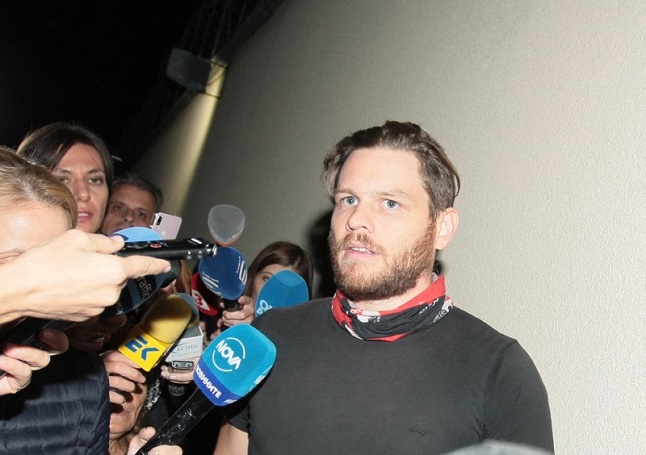
Jock Palfreeman, who since Tuesday is no longer in custody, told journalists he might remain in Bulgaria to continue his work in protecting prisoners’ rights. Palfreeman is the chairman and founder of an association for the advancement and protection of prisoners’ rights: the only one of its kind in the country.
Palfreeman was just released from the refugee detention center in Busmantsy, where he was held for a month immediately after being released on parole. Many, including the head of the Supreme Court of Cassations Lozan Panov and the three judges from the panel, which decided to grant Palfreeman parole, have expressed serious concern over the legality of keeping Palfreeman in custody. The official reason the authorities gave was that he did not have personal documents: a move, which almost caused a diplomatic scandal with Australia. According to Australian officials it issued all the necessary documents for Palfreeman.
Palfreeman said he had his passport all along before the police came in and confiscated it.
Meanwhile vice PM and far-right nationalist leader Krassimir Karakachanov held his middle finger on live TV to express his displeasure at the court’s decision to release Palfreeman on parole and that he is "perplexed at certain judges’ actions, including the head of the Supreme Court of Cassation’s Lozan Panov."
Majority of judges in the Supreme Judicial Council call for head of Supreme Court of Cassation to resign
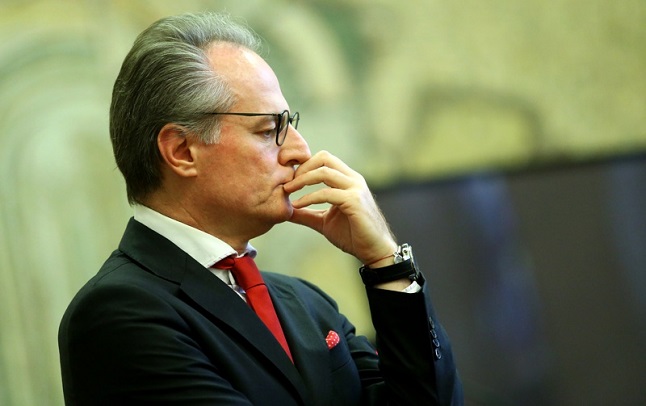
The majority of judges in the Supreme Judicial Council effectively called for the resignation of the head of the Supreme Court of Cassation, Lozan Panov because of his position of the Jock Palfreeman case. The Supreme Judicial Council is the highest administrative body in the judicial system and its members include judges and prosecutors.
Palfreeman is serving a twenty-year sentence in Bulgaria for the murder of a student in 2007. Palfreeman has always maintained he was acting in self-defence but the court dismissed the claim of the defense.
A panel of judges granted Palfreeman parole about a month ago in keeping with the law. He was detained by the police immediately upon his release and sent to a refugee detention center.
The decision to grant Palfreeman was met with a lot of public disapproval, which was supported by some high-ranking politicians as well. In keeping with his questionable tabloid-friendly use of the Prosecutor’s Office, Prosecutor General Sotir Tsatsarov requested the Supreme Court of Cassation to overturn the ruling for parole, which otherwise could not be appealed.
The question of whether authorities had the right to detain Palfreeman after his release on parole remains an open one. His detainment and the fact that political and other prominent public figures used the case to attack the court and the judges, who made the ruling, led to nearly 300 judges issuing an official position about the dangers of politicizing court rulings.
A week later the head of the Curt of Cassation, Lozan Panov made public his own view that Palfreeman was held in custody unlawfully. He called on his collogues, reviewqing Tsatsarov’s request to overturn the parole to make their decision "as swiftly as possible".
Panov’s decision to express these views publicly was viewеd by some in the Supreme Judicial Council as an interreference into the work of the judges. The judges in the council issued a position against Panov’s actions, describing them as unconstitutional and putting pressure on the judges and the outcome of the case. Panov in fact does not imply that he favors any particular outcome. He does, however, state that reviewing the case is not grounds for detaining Palfreeman. The council asserts in its declaration that Panov is actually directing the judges to rule in a specific way. The declaration is signed by all but three judges in the council.
Sole candidate for Prosecutor General tags along with Sotir Tsatsarov on a U.S. visit
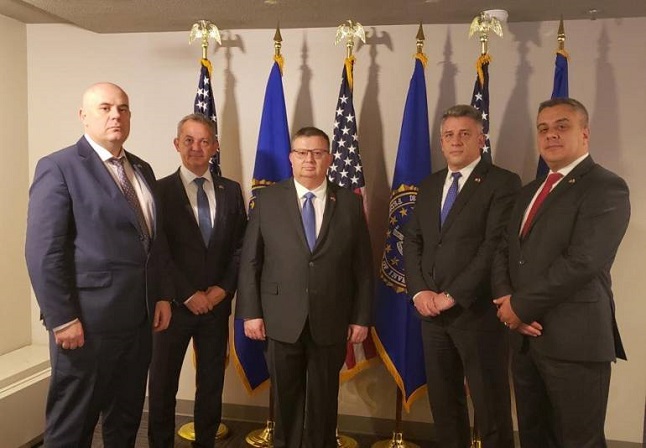
The sole candidate for Prosecutor General Ivan Geshev and his boss, the current holder the position, Sotir Tsatsarov flew to the U.S. this week along with a delegation of the heads of Bulgarian intelligence agencies. The visit is only one week away from the procedure for voting in the new Prosecutor General. The office of the prosecution informed the two would be back by the end of the week (Thursday).
Ivan Geshev’s nomination is tangled in controversy. Protests against his candidacy and the way the procedure is conducted have been ongoing since the nomination was first announced in July. The office of the Prosecutor General and the body, which elects him – the Supreme Judicial Council – are virtually immune from any outside pressure. They are going ahead with the appointment regardless of the criticism and concern, which have sprung from Geshev’s nomination, as there is no mechanism in place to push for its revisal. Tsatsarov bringing along Geshev with him on is one of many signals to this effect.
Meanwhile the head of the Supreme Court of Cassation Lozan Panov sent an official letter to Tsatsarov. In it he points out that he has requested the Prosecutor’s Office give him full information and documentation, regarding Geshev’s prosecutorial achievements. Panov to date has not received any reply to his inquiry. Earlier questions as to Geshev’s professional records have gotten only a general overview in numbers.
Panov says in his letter that this is far from sufficient. There must be clear and accurate data about Geshev’s cases, as well as the cases and indictments he has produced, and how sound they have proven in court. Panov argues that this is the only way to assess the quality of his work in detail – something the head of the Supreme Court insists is a must when deciding on the fitness of a candidate for the highest position in the prosecution.
Ключови думи
За честна и независима журналистика
Ще се радваме, ако ни подкрепите, за да може и занапред да разчитате на независима, професионална и честна информационно - аналитична медия.
 0 коментара
0 коментара
Екипът на Mediapool Ви уведомява, че администраторите на форума ще премахват всички мнения, съдържащи нецензурни квалификации, обиди на расова, етническа или верска основа.
Редакцията не носи отговорност за мненията, качени в Mediapool.bg от потребителите.
Коментирането под статии изисква потребителят да спазва правилата за участие във форумите на Mediapool.bg
Прочетете нашите правила за участие във форумите.
За да коментирате, трябва да влезете в профила си. Ако нямате профил, можете да се регистрирате.
